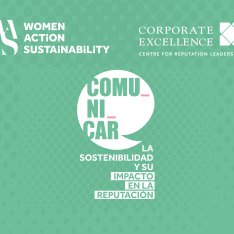Loading...
Sustainability is a non-negotiable condition for companies operating in 21st-century markets. Environmental, Social, and Governance (ESG) criteria, which constitute the triple impact, are crucial elements for building trust and social legitimacy, thereby ensuring the long-term viability of any project.
Corporate sustainability introduces a new perspective, encouraging organizations to look beyond short-term economic gains to consider the long-term social implications of their activities.
Frequently Asked Questions
What is sustainability in business?
Many associate sustainability with efficient resource management; however, it is a broader concept that refers to an organization’s ability to operate responsibly in economic, social, and environmental terms. Sustainability is a business strategy that balances short-term needs without compromising the long-term, creating shared value and positively contributing to the organization’s overall strategy.
Why is integrating sustainability into business important?
Sustainability management in organizations has transitioned from optional to essential. Demands from citizens, regulators, and investors are pushing companies not only to implement sustainable measures but also to adapt their business models fundamentally and to monitor the economic, social, and governance impacts of their entire value chain. Successfully making this transition provides a competitive advantage, as it can enhance reputation, increase customer loyalty, and improve operational efficiency.
What do ESG, ASG, and CSR mean, and how do they differ?
Corporate sustainability initially emerged with CSR (Corporate Social Responsibility), understood as voluntary, philanthropic actions not necessarily connected to the core strategy or main activities of the business. However, as more consumers, investors, employees, and even regulators demanded sustainable and responsible operations, and as companies realized their actions have substantial impacts—not only environmentally but also in terms of governance and profitability—a shift from CSR to ESG emerged.
ESG, known as ASG in Spanish, and more broadly referred to as triple impact criteria, cover Environmental (climate change, emissions control, natural resources), Social (health, inclusion and diversity, local community support, employment), and Governance aspects (fair and ethical labor practices, EU taxonomy, reporting indicators, legal frameworks).
What are greenwashing and greenhushing, and how should sustainability be communicated effectively?
Greenwashing and greenhushing are two concepts linked to challenges in corporate sustainability communication:
- Greenwashing describes misleading communication aimed at presenting a falsely sustainable image that does not align with reality. This term applies to organizations promoting “green” initiatives without making significant changes in their business practices, often aware of their negative environmental impact or failing to meet adequate sustainability standards.
Related terms include purplewashing (misleading alignment with the feminist movement), pinkwashing (associated with the LGBTQ+ movement), and socialwashing (false claims of social commitment). - Greenhushing, on the other hand, describes the lack of communication due to excessive caution, fear of misinterpretation, or of being accused of greenwashing. This overly cautious communication approach can lead to a lack of transparency, potentially impacting stakeholder recognition of the company’s sustainability efforts.
In summary, effective sustainability communication should be: strategic and integrated, transparent and coherent, comprehensive with a 360º view, clear and educational, and, finally, it should foster alliances.
Examples of Corporate Sustainability – Practical Cases
The massive pollution case involving Shell and the crisis stemming from its reluctance toward the green movement highlight the importance of sustainability for today’s organizations. Likewise, exemplary ecological transformations of oil companies like Ørsted and Neste toward renewable business models, new intrinsically sustainable companies like Ecoalf and Seventh Generation, and innovative SMEs like Serafí serve as valuable examples.
Explore these cases and many more in our Practices in Action.





